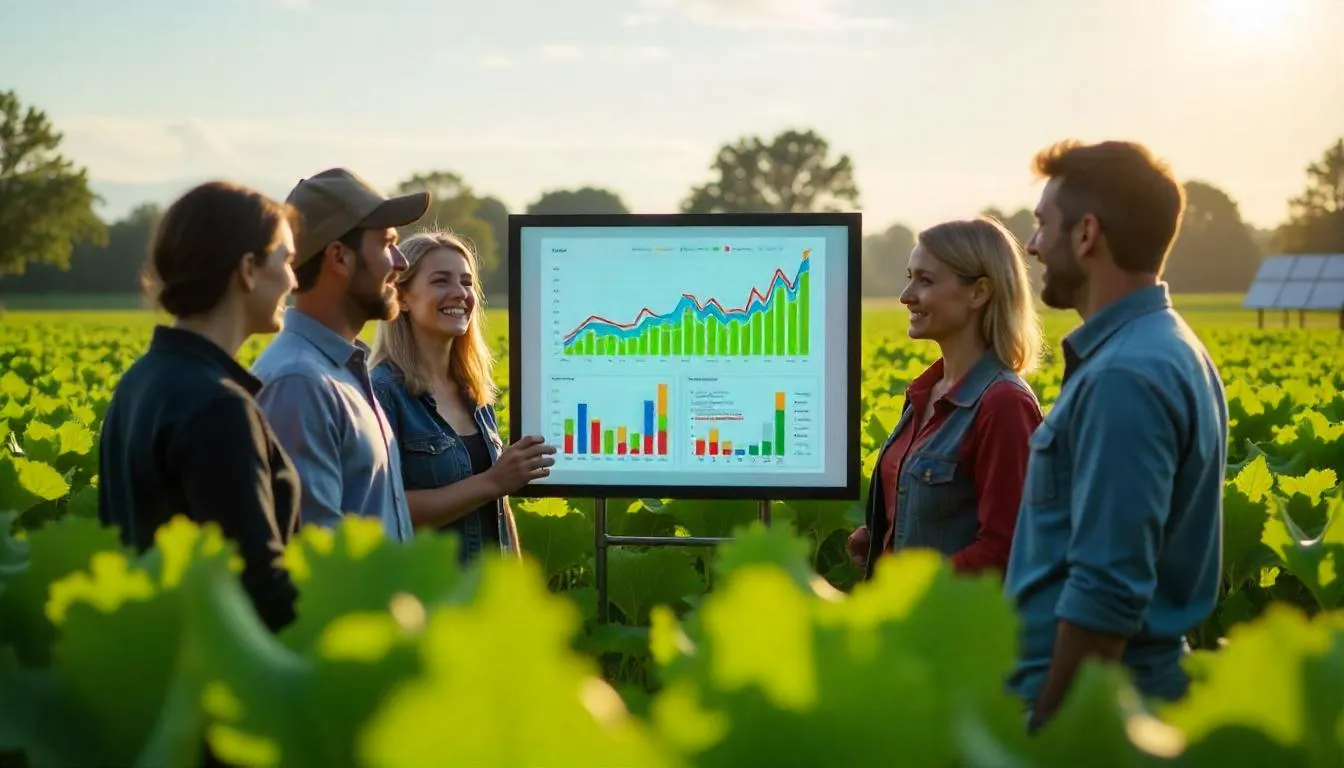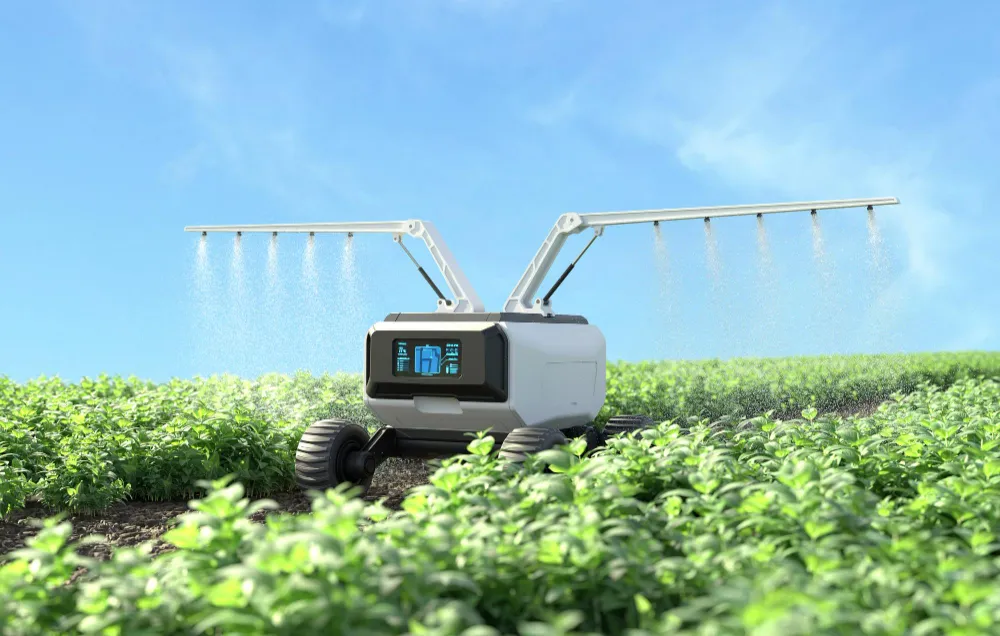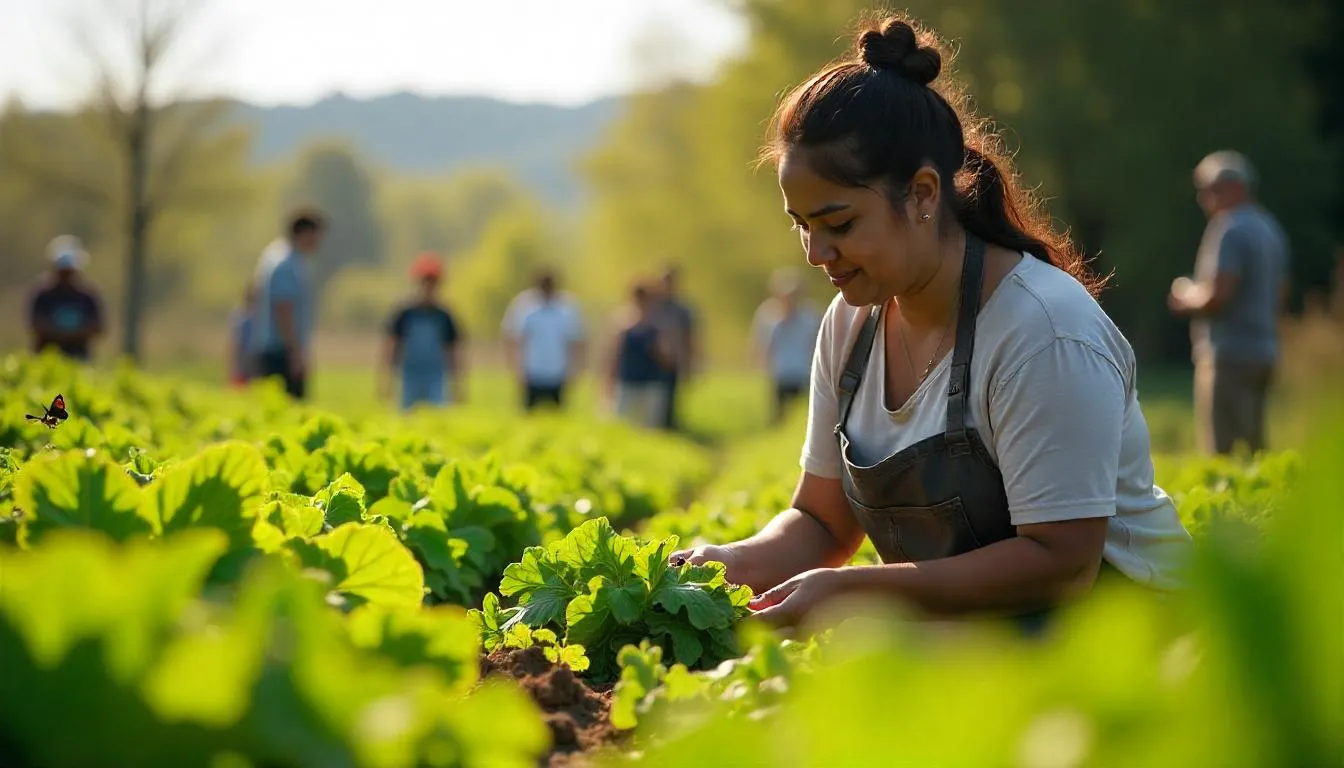In today’s rapidly evolving world, the concept of a green economy is reshaping various sectors, including agriculture. The green economy focuses on fostering economic growth while minimizing environmental impact, and sustainable agriculture is a cornerstone of this approach. Sanjeevani Farms, a leading managed farmland company based in Bangalore, exemplifies how businesses can integrate green economic principles into their operations. This blog explores the intersection of the green economy and sustainable agriculture, highlighting how Sanjeevani Farms contributes to this vital movement.
What Do You Mean by Green Economy?
It represents a transformative shift towards economic activities that promote sustainability and environmental health. Unlike traditional economic models that prioritize immediate gains often at the expense of the environment, the green economy aims to balance economic growth with ecological preservation. It involves adopting practices that reduce carbon footprints, enhance resource efficiency, and foster social equity.
The Six Pillars of Green Economy
To fully embrace a green economy, various sectors must align with its six foundational pillars. Let’s explore how these pillars relate to sustainable agriculture and the role of companies like Sanjeevani Farms.
Pillar 1: Renewable Energy
Renewable energy is essential for reducing greenhouse gas emissions. At Sanjeevani Farms, integrating solar panels and other renewable energy sources helps decrease the reliance on fossil fuels, making farming operations more sustainable.
Pillar 2: Sustainable Transport
Sustainable transport systems are crucial for minimizing environmental impact. Sanjeevani Farms supports this pillar by optimizing transportation logistics to reduce fuel consumption and emissions related to farm produce distribution.
Pillar 3: Water Management
Effective water management is key to sustainability. Sanjeevani Farms employs advanced irrigation techniques and water conservation methods to ensure that water use is efficient and environmentally friendly.
Pillar 4: Waste Management
Managing waste responsibly is a fundamental aspect of the green economy. Sanjeevani Farms adopts comprehensive waste management practices, including composting organic waste and recycling materials to minimize landfill contributions.
Pillar 5: Land Use and Agriculture
Sustainable land use and agriculture are at the heart of the green economy. Sanjeevani Farms uses organic farming practices and sustainable land management techniques to preserve soil health and enhance biodiversity.
Pillar 6: Green Buildings
Green buildings contribute to energy efficiency and reduced environmental impact. Although Sanjeevani Farms operates primarily on farmland, the principles of green building are reflected in their farm infrastructure, emphasizing energy-efficient designs and eco-friendly materials.
The Importance of Green Revolution in Indian Economy

The Green Revolution significantly transformed Indian agriculture by introducing high-yield crop varieties and modern farming techniques. This revolution played a crucial role in boosting food production and economic growth. However, it also brought challenges such as soil degradation and water scarcity. Today, integrating green economics into agricultural practices is essential for addressing these issues and ensuring long-term sustainability.
Sustainable Agriculture: A Core Component of the Green Economy
Sustainable agriculture aligns perfectly with the principles of a green economy. It focuses on producing food in a way that maintains ecological balance, supports local economies, and ensures food security for future generations. Sanjeevani Farms exemplifies this approach by implementing practices that promote environmental stewardship, resource efficiency, and social responsibility.
Innovative Practices in Sustainable Agriculture
Several innovative practices are leading the way in sustainable agriculture, and Sanjeevani Farms is at the forefront of these initiatives.
Organic Farming
Organic farming avoids synthetic chemicals and GMOs, focusing on natural processes. Sanjeevani Farms adheres to organic farming principles, ensuring that produce is grown without harmful chemicals.
Agroforestry
Agroforestry integrates trees and shrubs into agricultural systems, benefiting soil health and biodiversity. Sanjeevani Farms incorporates agroforestry practices to enhance the resilience and productivity of their farmlands.
Conservation Tillage
Conservation tillage minimizes soil disturbance, preserving soil structure and fertility. Sanjeevani Farms uses conservation tillage techniques to reduce erosion and improve soil health.
Integrated Pest Management
Integrated pest management combines biological, cultural, and mechanical methods to control pests. Sanjeevani Farms employs this approach to manage pests effectively while minimizing the use of chemical pesticides.
The Role of Technology in Advancing Sustainable Agriculture
Technology plays a crucial role in advancing sustainable agriculture. Sanjeevani Farms leverages various technologies to enhance farming practices.
Precision Agriculture
Precision agriculture uses data analytics and GPS technology to optimize farming practices. Sanjeevani Farms utilizes precision agriculture to improve resource use efficiency and increase crop yields.
Biotechnology and GMOs
Biotechnology and GMOs offer solutions for pest resistance and crop improvement. While controversial, Sanjeevani Farms selectively uses biotechnology to support sustainable farming without compromising environmental health.
Smart Farming Techniques
Smart farming involves using IoT devices and AI to monitor and manage agricultural operations. Sanjeevani Farms integrates smart farming techniques to optimize resource use and reduce waste.
Challenges in Implementing Sustainable Agriculture
Despite the benefits, there are challenges in adopting sustainable agriculture practices.
Economic Barriers
The initial costs of implementing sustainable practices can be high. Sanjeevani Farms addresses these challenges through strategic investments and partnerships to make sustainability economically viable.
Policy and Regulatory Challenges
Inconsistent policies can hinder the adoption of sustainable agriculture. Sanjeevani Farms advocates for supportive policies and works with stakeholders to promote regulatory frameworks that support green economics.
Social and Cultural Obstacles
Resistance to change can be a barrier. Sanjeevani Farms engages with local communities and provides education to overcome social and cultural obstacles related to sustainable practices.
Policy Recommendations for Promoting Sustainable Agriculture
To foster sustainable agriculture, the following policy recommendations are vital:
- Encouraging Investment in Green Technologies: Financial support and incentives for green technologies can accelerate the adoption of sustainable practices.
- Supporting Small Farmers and Rural Communities: Empowering small farmers with resources and knowledge is essential for widespread adoption of sustainable agriculture.
- Creating Awareness and Education Programs: Increasing awareness and education about sustainable practices can drive change at the grassroots level.
The Role of Consumers in the Green Economy
Consumers have a significant role in promoting sustainability. By choosing products from companies like Sanjeevani Farms that prioritize green practices, consumers can support the transition to a greener economy. Every purchase can contribute to a more sustainable future.
Sanjeevani Farms: Leading in Sustainable Agriculture
Sanjeevani Farms exemplifies how sustainable agriculture fits into the green economy. Based in Bangalore, they operate under Green Economics principles, focusing on managed farmlands that are both environmentally friendly and economically viable.
The Managed Farmland Model
Sanjeevani Farms offers a straightforward investment opportunity in the green economy. By purchasing land managed with sustainable practices, investors can earn returns while supporting organic farming, resource conservation, and community benefits.
Invest in the Green Economy with Sanjeevani Farms
Investing in Sanjeevani Farms means supporting sustainable agriculture and Green Economics. It’s a direct way to contribute to environmental protection, promote biodiversity, and combat climate change, all while aligning your investments with your values.
Conclusion
The green economy is transforming industries worldwide, with agriculture playing a crucial role in this shift. Sustainable agriculture is essential for meeting today’s needs while safeguarding the future. Sanjeevani Farms leads the way in this movement, proving that integrating green economics into farming practices delivers both environmental and economic benefits.
If you’re committed to supporting sustainable agriculture and advancing the green economy, Sanjeevani Farms is your ideal partner. Explore how we’re making a difference and discover investment opportunities that align with your values. Visit Sanjeevani Farms to learn more and join us in creating a sustainable future.
FAQs
Which action will promote a green economy?
Adopting renewable energy, implementing efficient resource management, and supporting sustainable practices across industries are key actions to promote the green economy. These measures reduce environmental impact, enhance sustainability, and foster economic growth through eco-friendly innovations.
Who are the stakeholders of green economics?
Stakeholders include governments, businesses, non-governmental organizations, financial institutions, and consumers. Each plays a crucial role in implementing sustainable practices, investing in green technologies, and supporting policies that drive environmental and economic sustainability.
Are we really moving towards a green economy?
Yes, there is significant progress as more countries and companies adopt sustainable practices. Investments in renewable energy, green technologies, and environmental policies indicate a growing commitment to reducing carbon footprints and fostering economic sustainability.
How does green technology affect the economy?
Green technology boosts the economy by creating new job opportunities, reducing energy costs, and enhancing efficiency. It stimulates innovation and drives investments in sustainable industries, leading to economic growth while minimizing environmental impact and resource depletion.
How is flora related to the green economy?
Flora, including plants and trees, is integral to the green economy as it supports biodiversity, improves air quality, and aids in carbon sequestration. Sustainable land management and reforestation efforts help enhance ecological balance and contribute to economic sustainability.
How do we measure the green economy?
It is measured through indicators such as carbon footprint reduction, resource efficiency, investment in renewable energy, and improvements in environmental quality. Economic metrics like green job creation and sustainable GDP growth also reflect progress.
How do we promote a green economy in banks?
Banks can promote it by offering green financing options, investing in sustainable projects, and integrating environmental criteria into lending practices. Supporting green bonds, sustainability reporting, and eco-friendly investments enhance their role in economic sustainability.
Which bank won green economy visionary?
The Green Economy Visionary Award was won by the Bank of America for its significant contributions to sustainable finance and environmental initiatives. The bank’s commitment to integrating green practices and supporting eco-friendly projects has set a notable example.
Which country taken decision to step emission green economy internationally?
The United Kingdom has taken a decisive step by committing to reduce greenhouse gas emissions and lead global efforts towards a green economy. Its ambitious climate policies and international agreements demonstrate a strong commitment to environmental sustainability.
Who created partnership action for the green economy?
The Partnership for Action on Green Economy (PAGE) was created by the United Nations to promote the transition to a green economy. PAGE brings together various UN agencies, governments, and stakeholders to support sustainable economic development.
Why does a green economy matter for the least developed countries?
It is crucial for least-developed countries as it promotes sustainable development, improves resilience to climate change, and fosters economic growth through green technologies. It helps these countries achieve long-term sustainability while addressing environmental challenges.
Why R&D is important for green economy industrialization?
Research and Development (R&D) are vital for it industrialization as they drive innovation in sustainable technologies and practices. R&D leads to the development of efficient green solutions, enhances competitiveness, and supports the transition to a low-carbon economy.




